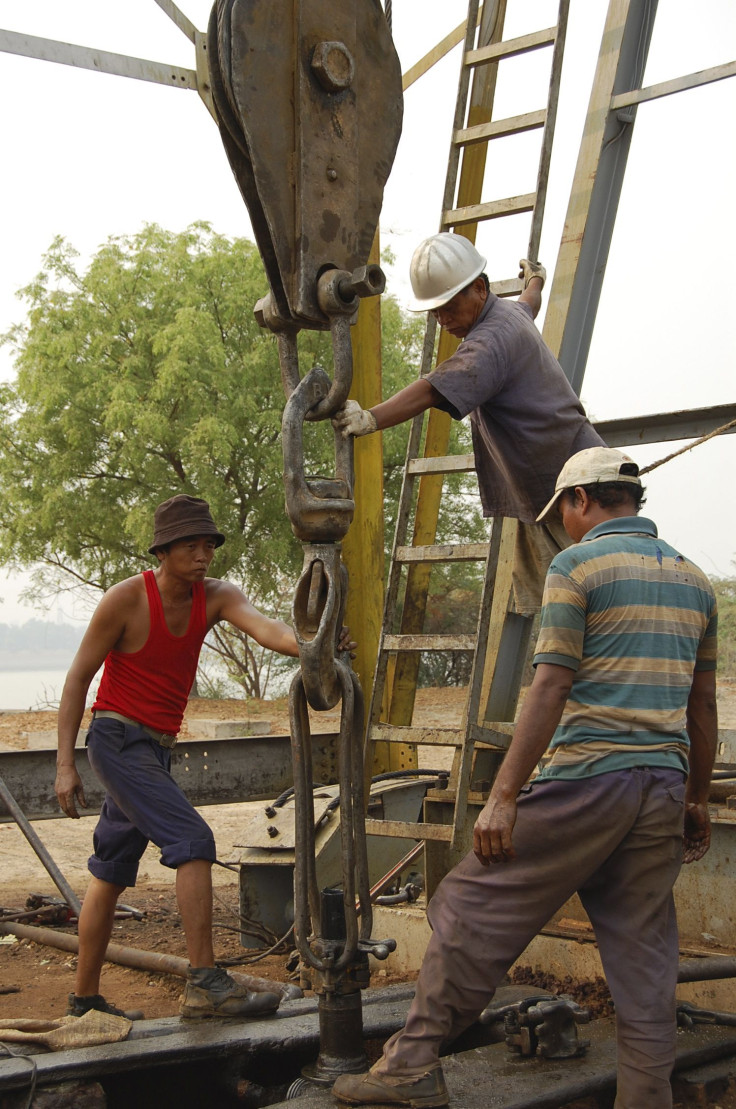Myanmar's Largest Investor, China, May See Its Investment Share Dwindle As Western Companies Move In

Chinese firms, which for decades were the largest and the only foreign investors in a closed-off Myanmar, are now becoming increasingly unpopular for allegedly unfair contracts, environmental damages and China’s ties with the former military regime.
As a result, China could see its share of total investment in Myanmar diminish as the nation sees foreign investment from developed countries, following the lifting of Western trade sanctions and the opening of the economy under the new democratic government.
Myanmar officials said on Thursday that the controversial copper mine deal with the Chinese company Wanbao has been renegotiated. The Myanmar government will receive 51 percent of the new revenue, while the Chinese firm will receive 30 percent and the military-owned Myanmar Economic Holding (MEH) will take 19 percent, according to Agence France Presse (AFP).
The revised contract, which was previously a joint venture between Wanbao and MEH, came after a series of protests that ended violently last year, when dozens of monks and villages were injured. The protesters, however, are not satisfied and plan to keep up the resistance.
"Our intention is to stop the copper mine project completely," farmer San Maung told AFP by telephone, vowing to maintain peaceful opposition.
"We will protest if needed. We rely on this mountain for our living. ... We will also oppose it because there's no transparency," he added.
The copper mine venture was made in 2011, before the current government took over, and now, as Myanmar begins its democratization process, deals made under the junta are under public scrutiny, according to BBC.
Protesters include farmers who have seen their crops suffer since the mine opened, environmental activists who are concerned for the Myanmar countryside, and monks who are against plans to relocate a sacred pagoda that was once home to a famous Buddhist teacher.
The controversy is frustrating for the Chinese, as well. Geng Yi, the mine’s director, admitted that the protests made him feel “uncomfortable and unsafe.”
“Without the rule of law and stability, how can this country attract or protect foreign investments?” Geng asked, according to BBC.
The Myanmar government’s stance on the issue has been mixed, owing largely to the complex relationship between the two countries. China has been a longtime supporter of the former military scheme.
President Thein Sein’s popularity shot up last year after he suspended the $3.6 billion Myitsone hydro-electric dam on the Irrawaddy River – another controversial Chinese mega-project, but with the brutal suppression of the Wanbao copper mine protests, many suspect the government acted to avoid angering China.
China remains the largest investor in Myanmar currently, followed by Thailand, but with the removal of sanctions, Western companies have moved in. Most recently Coca-Cola (NYSE:KO) and Unilever (NYSE:UN) have both established operations.
“They are moving in fast,” said Thurane Aung, director of Dagon International, a Myanmese conglomerate. “Every week I read news of U.S. investment in Myanmar. I’ve been seeing German, French and Dutch coming to look for business opportunities in Myanmar.”
Japanese investors have also been enthusiastic about Myanmar. A major Japanese project, the Thilawa special economic zone on the southeaster outskirts of Yangon, is under development after the two governments signed an agreement in April. The project will comprise a port and a large industrial zone, according to the South China Morning Post.
© Copyright IBTimes 2024. All rights reserved.





















